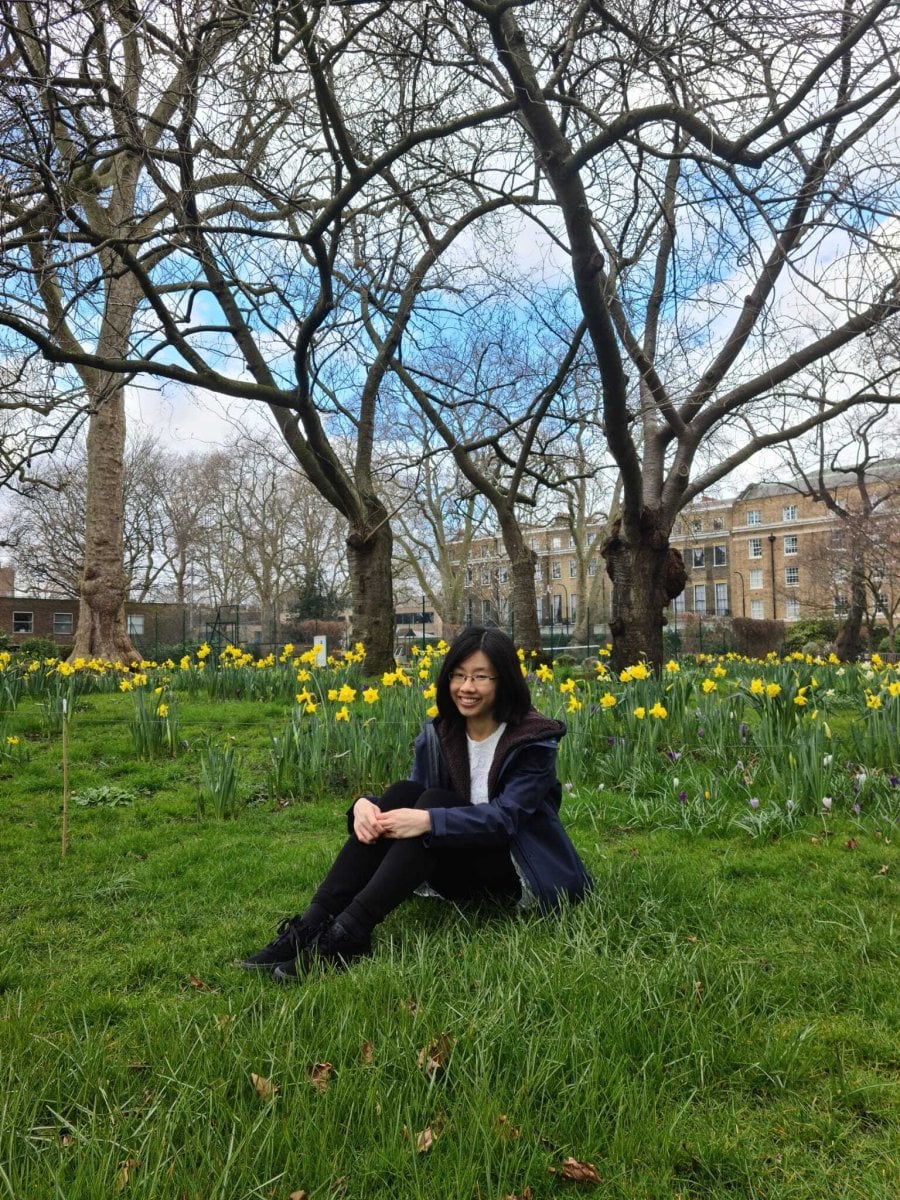
Tell us about your current research
I am a third year PhD student at LSHTM and am also a senior data analyst at the Communicable Disease Division in the Ministry of Health in Singapore. Under the supervision of Professor Adam Kucharski and Professor Vernon Lee, my current research focuses on the transmission dynamics of COVID-19 in Singapore.
It has been more than three years since the start of the COVID-19 pandemic but the everchanging landscape of the pandemic has continued to pique my interest in infectious disease modelling. Specifically, how we can measure the effectiveness of outbreak control measures by integrating surveillance data and modelling tools; what we can learn about human contact patterns from high resolution contact tracing technologies; how will an outbreak progress under evolving pathogen characteristics.
How did you first become interested in infectious disease modelling?
I have a keen interest in mathematics, physics and geography but despite the ability to execute the equations taught in my undergraduate engineering studies, I was not able to develop an appreciation for the concepts. At the same time, I was enrolled in an interdisciplinary programme and my exposure to topics such as sociology, ethics, and philosophy made me question, what do I want to do for a living?
I was unsure about life after graduation, so I tried several engineering internships and clinical attachments while applying for post-graduate scholarships. I was very fortunate to be given the opportunity to pursue a Masters in Epidemiology because through my post graduate study, I learnt how mathematics could be used to describe disease progression, human behaviour, implementation of interventions and ultimately, to model outbreaks. This is exactly what I want to pursue as a career.
Describe your career journey so far
Prior to my PhD, I was a public health officer at the ministry. I was involved in the surveillance and response of droplet borne and contact transmissible diseases; specifically influenza and hand, foot and mouth disease. The work required me to interact with many individuals, ranging from members of the public to academic modellers to policy makers. In the first three years, there was never a dull moment. I had to learn the characteristics of different diseases and their corresponding outbreak response, grasp the nuts and bolts of surveillance systems, and master the nuances in public and policy communication (am still a greenhorn!).
The key turning point in my career was the onset of the COVID-19 pandemic. Infectious disease modelling played an important part in driving evidence-based outbreak response measures. With prior experience in disease surveillance and a huge interest in infectious disease modelling, my reporting officer allowed me to pivot towards COVID-19 outbreak modelling. The initial phase of the pandemic was very challenging as there were many modelling questions to tackle but very little time. Furthermore, textbook mathematical models may not be directly applicable in real life given the complexity of transmission dynamics or variation in data sources. Overall, this pandemic has allowed me to put my infectious disease modelling knowledge into practice but also highlighted my inadequacies. This naturally led to my desire to pursue a PhD in this field.
What are your goals for the future?
Balancing between work at the ministry and academic research may not be easy, but I really hope to continue to contribute to the growth of infectious disease modelling in both fields.
What’s your favourite thing about working at LSHTM?
Firstly, the support that I received from my supervisors and academic committee. Secondly, being part of CMMID. The discussions in various meetings/seminars, over Slack and with the research fellows of room 107 have kept me well engaged on the different modelling topics. Furthermore, it was easy to reach out to senior academia personnel for work-related questions and the constant outreach from the early career research group has helped me to connect with others in UK (as I am currently based in Singapore).
Do you have any advice or tips for other early career researchers?
Research priorities inside and outside of academia may diverge at times. Collaborating with people outside of academia will help ECRs understand the key priorities, what are the existing resources available and how modelling tools can be integrated with existing surveillance systems.
Random chats, when done in moderation, are not a waste of time. It helped me to question my assumptions, spark new ideas, and connect with others from different disciplines.
How can people get in contact with you?
Email: rachael.pung@lshtm.ac.uk or rachael_pung@moh.gov.sg
Twitter: @PungRachael
LSHTM's short courses provide opportunities to study specialised topics across a broad range of public and global health fields. From AMR to vaccines, travel medicine to clinical trials, and modelling to malaria, refresh your skills and join one of our short courses today.
